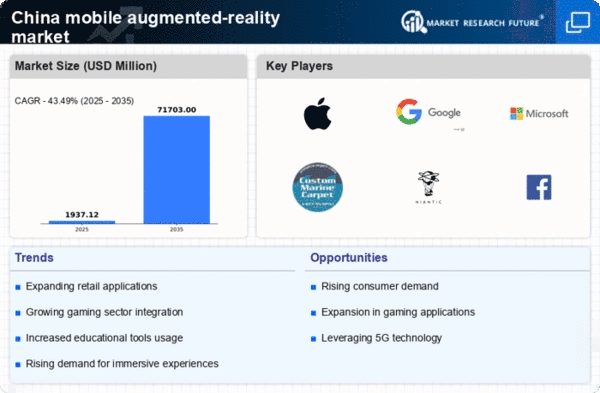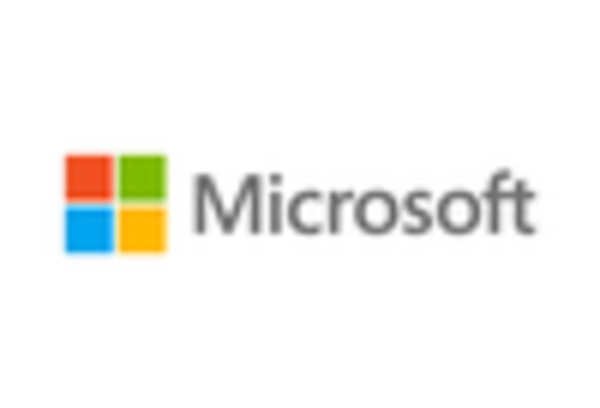Government Support and Investment
The Chinese government has shown a strong commitment to fostering the mobile augmented-reality market through various initiatives and investments. Policies aimed at promoting technological innovation and digital transformation have led to increased funding for research and development in augmented-reality technologies. In 2025, government-backed projects are projected to contribute approximately $1 billion to the mobile augmented-reality market, facilitating the growth of startups and established companies alike. This support not only enhances the competitive landscape but also encourages collaboration between public and private sectors, ultimately driving the adoption of augmented-reality solutions across various industries.
Integration with E-commerce Platforms
The integration of mobile augmented-reality technologies with e-commerce platforms is transforming the retail landscape in China. As online shopping continues to gain traction, retailers are leveraging augmented-reality features to enhance the customer experience. For instance, virtual try-on solutions allow consumers to visualize products before making a purchase, thereby reducing return rates and increasing customer satisfaction. By 2025, it is anticipated that the mobile augmented-reality market will account for approximately 15% of the overall e-commerce sector in China, highlighting the potential for growth as more retailers adopt these technologies to stay competitive.
Technological Advancements in Mobile Devices
The rapid evolution of mobile devices in China plays a crucial role in the mobile augmented-reality market. With the introduction of high-performance smartphones equipped with advanced processors and enhanced graphics capabilities, the potential for immersive augmented-reality experiences increases significantly. As of 2025, it is estimated that over 80% of smartphone users in China own devices that support augmented-reality applications. This technological progress not only enhances user engagement but also encourages developers to create innovative applications tailored for mobile platforms. Consequently, the mobile augmented-reality market is likely to witness substantial growth as more consumers gain access to devices capable of delivering high-quality augmented-reality experiences.
Expansion of Augmented-Reality Content Creation
The proliferation of user-generated content and augmented-reality tools is driving the mobile augmented-reality market in China. As more individuals and businesses gain access to user-friendly platforms for creating augmented-reality content, the diversity and volume of available applications are expected to increase. This trend is particularly evident among younger demographics, who are eager to engage with and share augmented-reality experiences. By 2025, it is projected that the number of augmented-reality applications in China will exceed 10,000, reflecting the growing interest in content creation and consumption within the mobile augmented-reality market.
Rising Consumer Demand for Interactive Experiences
In China, there is a noticeable shift in consumer preferences towards interactive and engaging experiences, which significantly impacts the mobile augmented-reality market. As consumers increasingly seek personalized and immersive content, businesses are compelled to adopt augmented-reality solutions to meet these expectations. Surveys indicate that around 70% of Chinese consumers express interest in using augmented-reality applications for shopping, entertainment, and social interactions. This growing demand is likely to drive innovation and investment in the mobile augmented-reality market, as companies strive to create unique experiences that resonate with their target audiences.
















